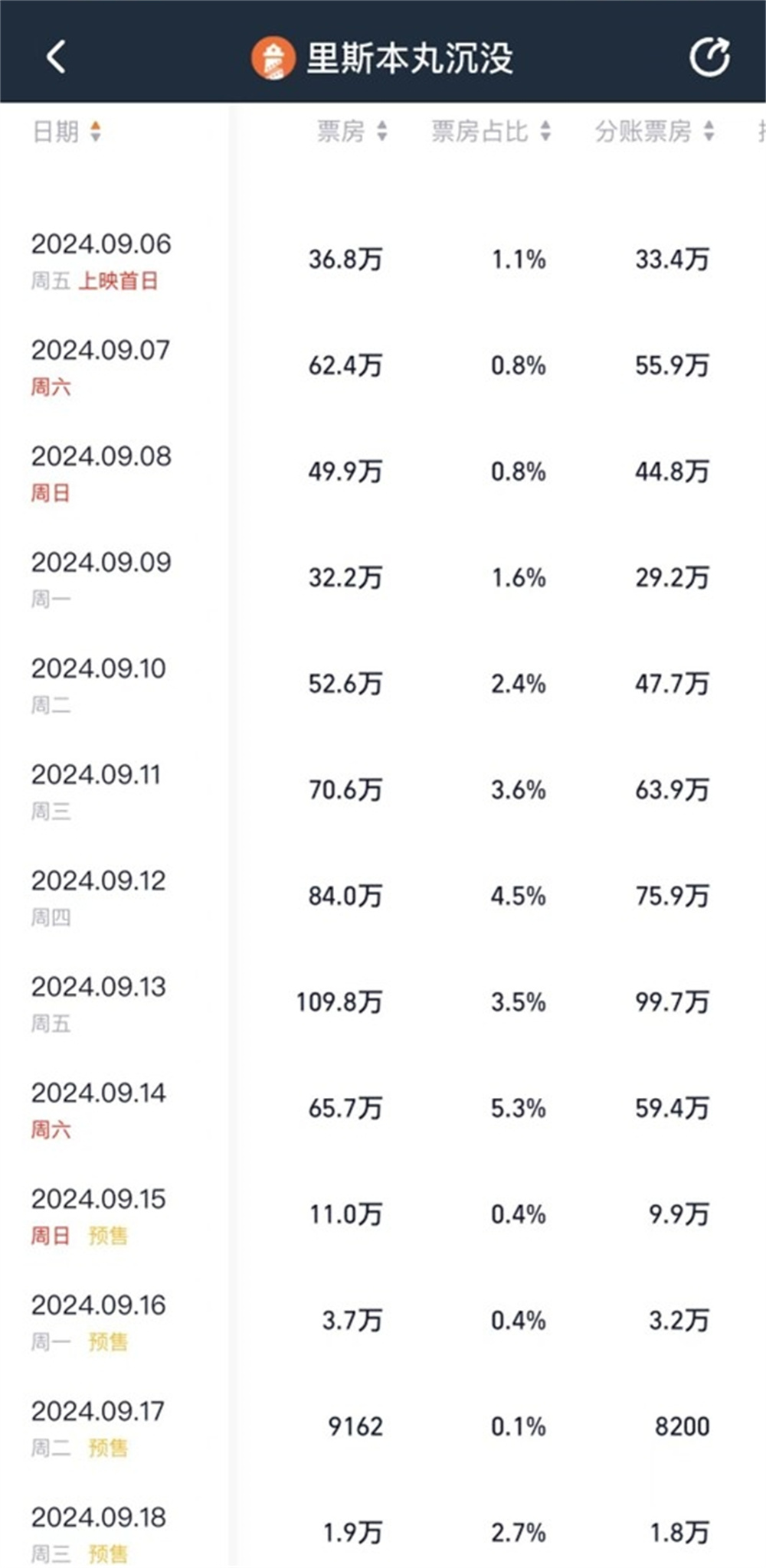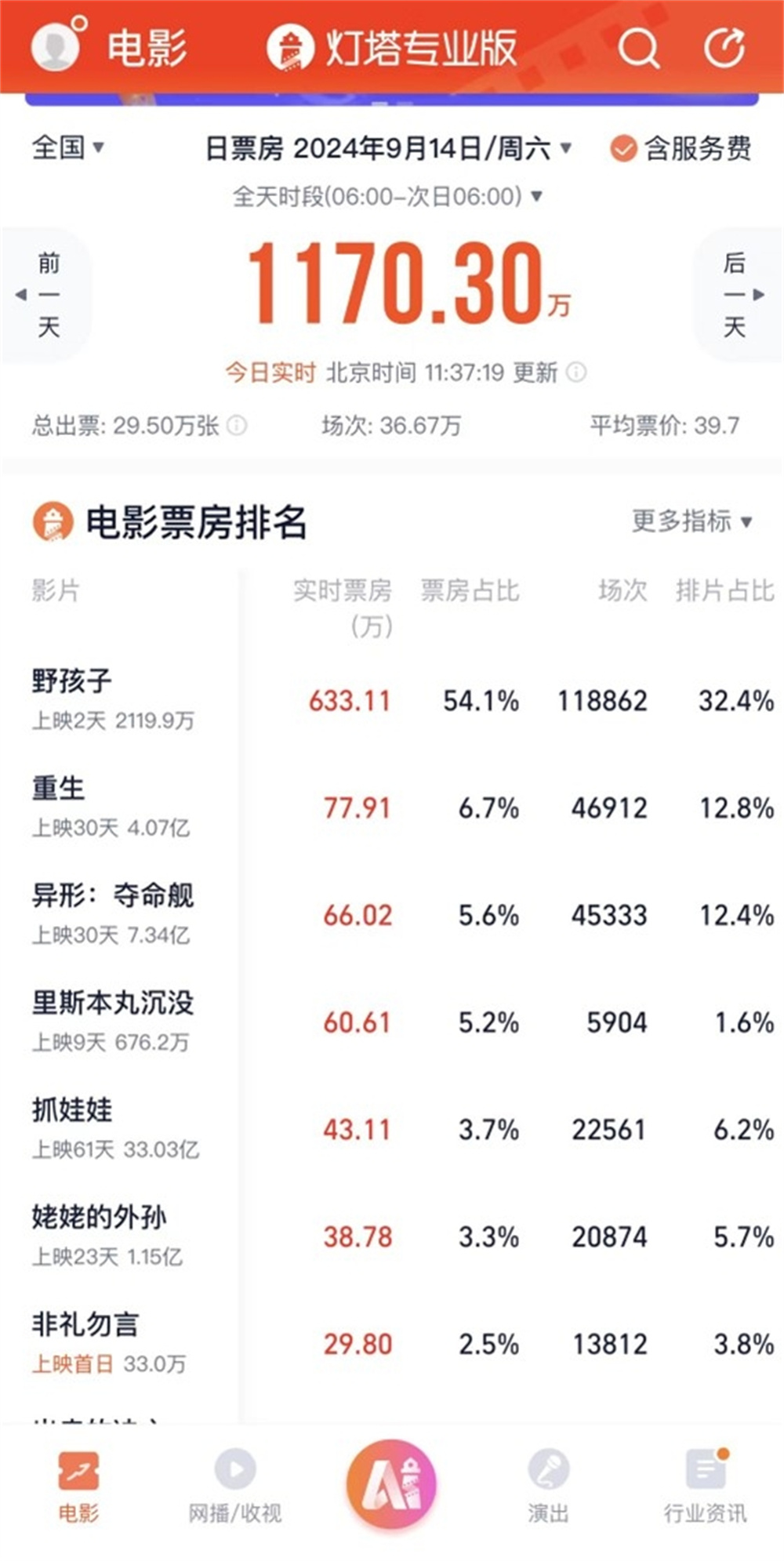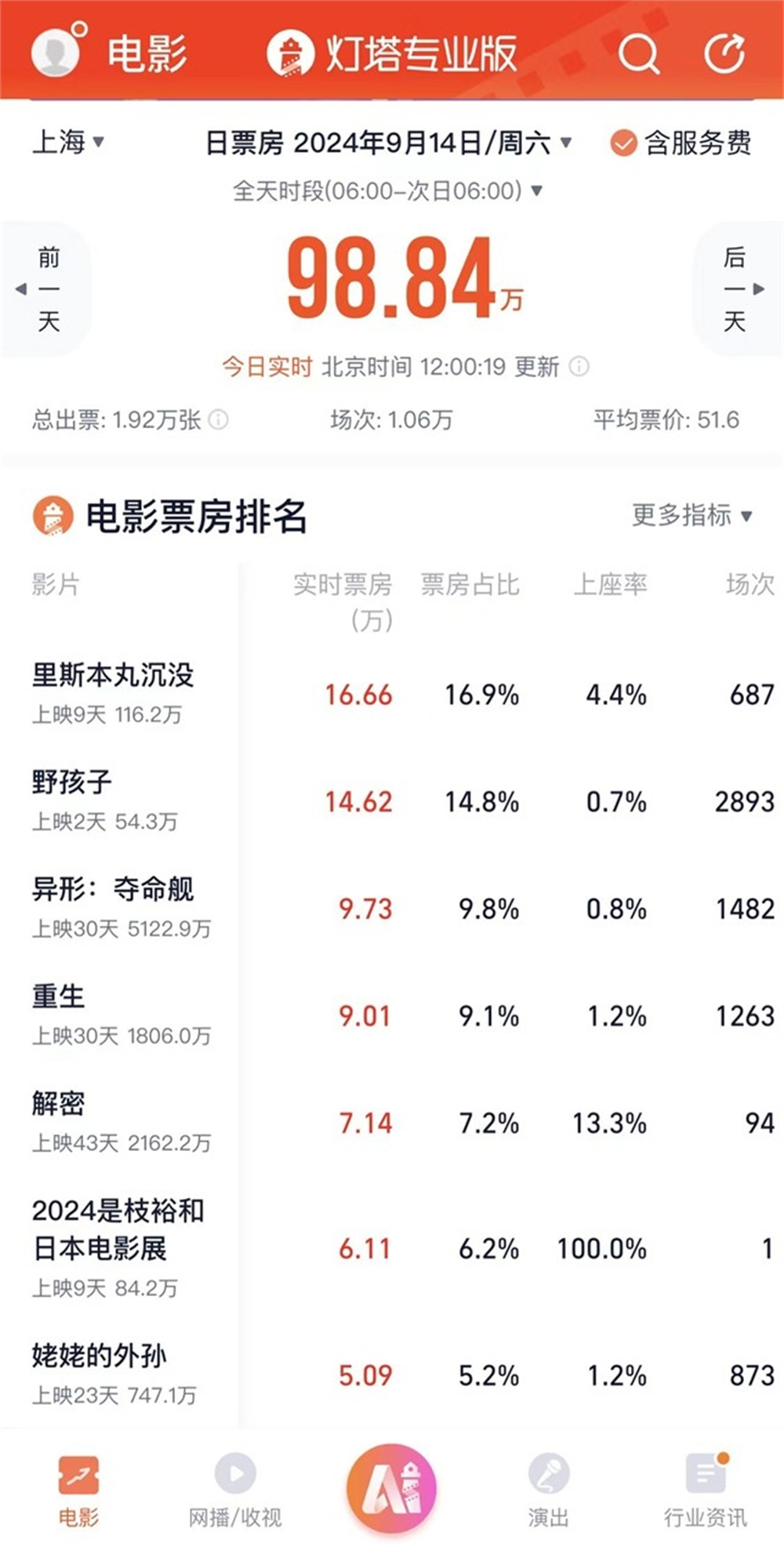
The movie "The Sinking of the Lisbon Maru," released on September 6, has broken 6.8 million yuan in box office sales within just one week. As of the time of this report, over 18,000 viewers have given it a remarkable score of 9.2 on Douban, making it one of the highest-rated domestic films in recent years. Currently, the film's reputation is continuing to build momentum. On September 14, its national screening rate fell to 1.6%, yet its total box office earnings still placed it fourth in the national box office rankings, following "Wild Child," "Rebirth," and "Alien: Death Ship." The film has managed to carve out a path of "reverse decline" in ticket sales, with a single-day box office of over one million for the first time on September 13.

In a surprising turn of events, the film’s single-day box office broke one million on September 13.
As of the reporter's deadline, the attendance rate for "The Sinking of the Lisbon Maru" on September 14 reached 2.5%, substantially higher than other films released during the same period. Its daily ticket earnings were just shy of 10% lower than the third-place film, while "Alien: Death Ship" had over 12% of the screening share, with nearly eight times the number of showings as "Lisbon Maru."

With a screening share of 1.6%, the film ranked fourth in daily box office earnings.
"The Sinking of the Lisbon Maru" is an often-overlooked chapter of history that has been revived today. The film transports us back to the harrowing moment in 1942 when the Japanese armed transport ship Lisbon Maru was escorting over 1,800 Allied prisoners of war from Hong Kong to Japan. While passing through the waters near Zhoushan's Dongji Island, the ship was torpedoed by a U.S. submarine due to the Japanese failing to display the appropriate emblem for transporting POWs, in violation of the Geneva Convention. In that critical moment, brave and selfless Zhoushan fishermen risked their own lives, using 46 wooden fishing boats to rescue 384 British prisoners from the sea. This event not only stands as a significant testament to the cooperation between China and Britain in fighting against fascist aggression during World War II, but also became a historical tale of the profound friendship between the two nations.

Poster for "The Sinking of the Lisbon Maru."
The story behind the film is equally moving. Director Fang Li spent eight years interviewing survivors and descendants, traveling from China to the U.K., U.S., and Japan to gather a wealth of material, ultimately bringing this little-known history to the big screen. During this process, Fang Li nearly "went bankrupt," even selling his house and maxing out credit cards to ensure that this piece of history was honored. Unlike in the past, when he made headlines for kneeling during the promotion of "Big Bird and the Phoenix," this time he refrained from making any flashy gestures for his film. Instead, he has simply reiterated his unwavering commitment as a marine detection scientist and filmmaker to fulfill this mission and pursue his ideals without regret.
Undoubtedly, "The Sinking of the Lisbon Maru" is achieving a remarkable resurgence due to its word-of-mouth success. Reflecting on its box office performance since its release, this "sunken ship" that has been "salvaged" carries with it historical truths that refuse to be forgotten, resonating deeply with every viewer. As more and more voices advocate for this film online, its box office income continues to rise despite its low screening rate, climbing from a rank of 14 or 15 at its premiere to now standing fourth in national earnings.
Notably, this film has garnered even greater viewer affinity in Shanghai. It first premiered at this year's Shanghai International Film Festival, and it has consistently ranked among the highest for box office earnings in the city. On September 14, "The Sinking of the Lisbon Maru" achieved box office earnings that exceeded the newly released "Wild Child," despite having less than a quarter of the screening slots. It accounted for nearly 17% of the total box office in Shanghai.

On September 14 in Shanghai, "The Sinking of the Lisbon Maru" ranked first in daily box office earnings.
In an interview with the media regarding box office earnings, Fang Li expressed that he knew the film wouldn’t recuperate its costs when he decided to make it, yet he hopes more people will see the movie and understand that period of history. "The value of 'The Sinking of the Lisbon Maru' is not solely as a film. It fills a gap in history; history will remain forever."


